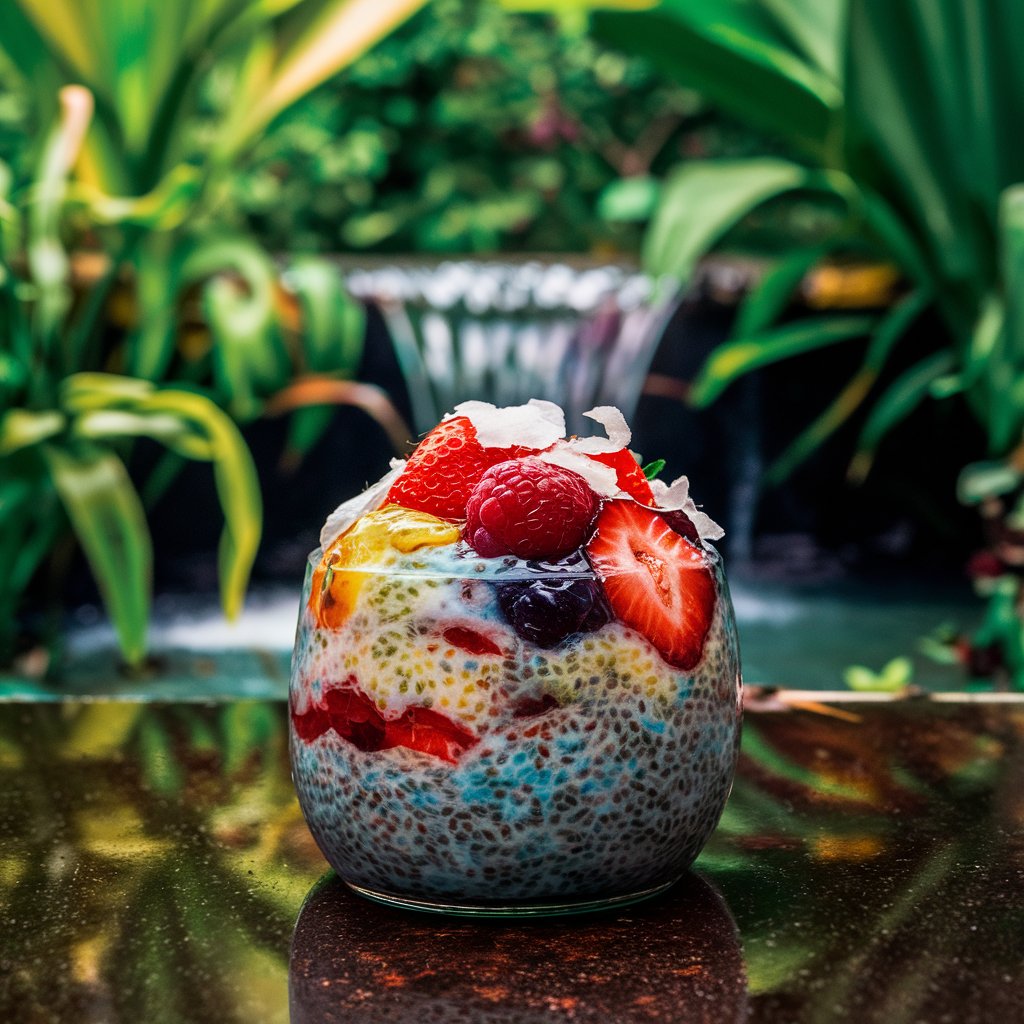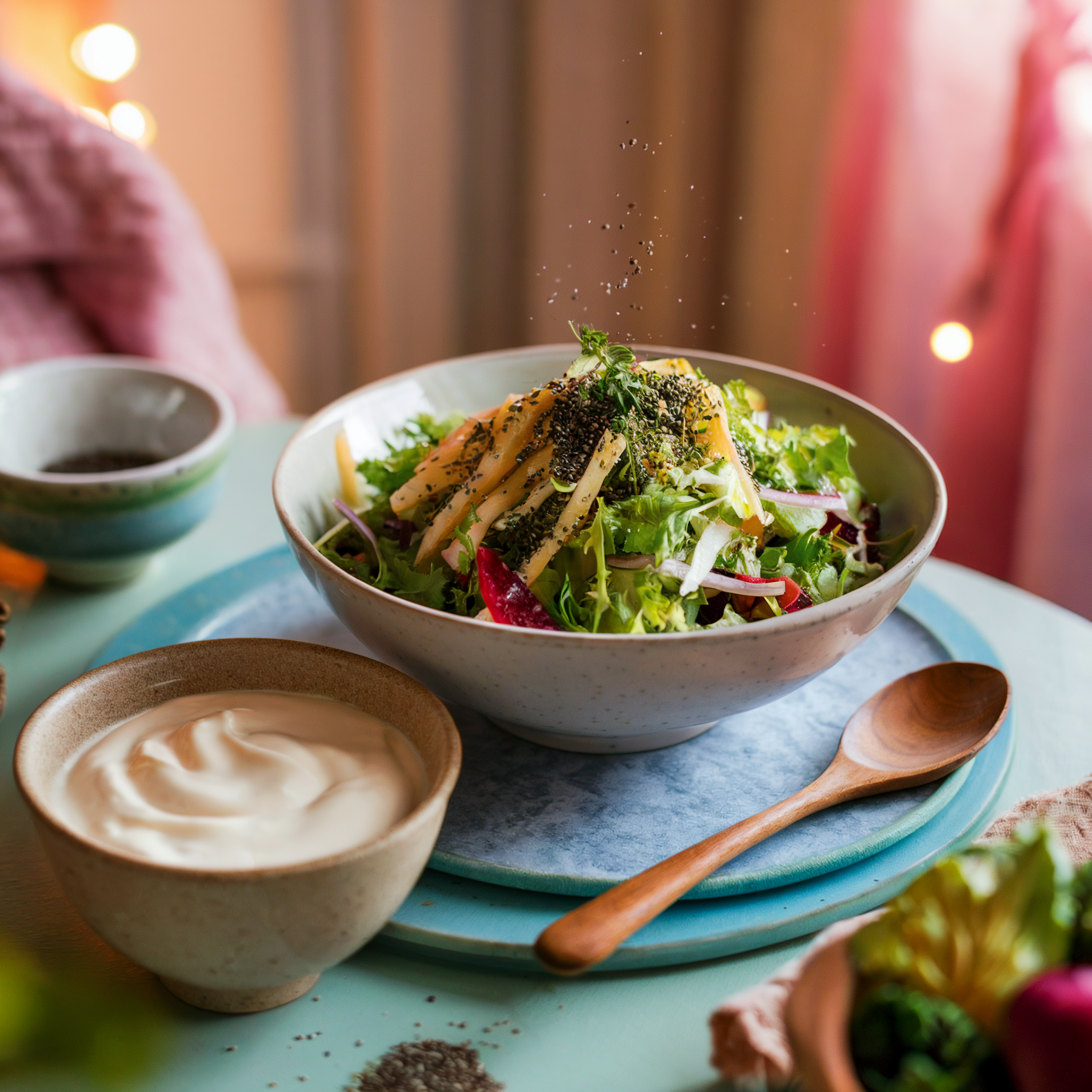Chia seeds are considered a modern superfood, but their history goes back to the Aztecs and Mayans. The small black and white seeds from the Salvia hispanica plant, are highly nutritious and beneficial for heart health. They have been eaten for thousands of years and are known for their numerous health benefits, particularly in supporting cardiovascular well-being. This article will explore why incorporating chia seeds into your diet is essential for maintaining a healthy heart.
Table of Contents
ToggleNutrient Profile of Chia Seeds
Chia seeds are small but highly nutritious. Just one ounce (about 28 grams) contains:
- 11 grams of fiber
- 4 grams of protein
- 9 grams of fat (including 5 grams of Omega-3 fatty acids)
- 18% of the Recommended Daily Intake (RDI) for calcium
- 30% of the RDI for magnesium
- 30% of the RDI for manganese
- 27% of the RDI for phosphorus
RDI- Recommended Daily Intake
These nutrients, especially fiber and Omega-3s, are important for heart health.
Chia Seeds and Heart Health: The Science Behind the Superfood
Rich in Omega-3 Fatty Acids
One of the most significant contributions chia seeds make to heart health is their high content of omega-3 fatty acids. Specifically, chia seeds are rich in alpha-linolenic acid (ALA), a plant-based omega-3 that has been linked to numerous heart health benefits. Studies suggest that a diet rich in omega-3s can help reduce inflammation, lower blood pressure, decrease cholesterol levels, and prevent arterial plaque buildup, all of which are crucial factors in maintaining a healthy heart.
High Fiber Content
Dietary fiber is important for heart health, and chia seeds are a great source of it. The fiber in chia seeds is mainly soluble, which means it turns into a gel in the stomach, slowing digestion and making you feel full. This soluble fiber can also lower LDL cholesterol, known as “bad” cholesterol, by binding to it and helping remove it from the body. Lowering LDL cholesterol reduces the risk of heart disease.
Antioxidant Powerhouse
Chia seeds are also packed with antioxidants, which help protect the body from oxidative stress and inflammation—two factors that are closely linked to heart disease. The antioxidants in chia seeds, including quercetin, kaempferol, and caffeic acid, work to neutralize free radicals in the body, preventing cellular damage and reducing the risk of chronic diseases, including those affecting the heart.
Regulation of Blood Pressure
High blood pressure, or hypertension, is a significant risk factor for heart disease. The magnesium and potassium content in chia seeds can help regulate blood pressure levels. Magnesium is particularly important as it helps relax blood vessels, thereby reducing blood pressure. Regular consumption of chia seeds can, therefore, be an effective natural strategy for managing hypertension.
Balancing Blood Sugar Levels
Maintaining stable blood sugar levels is crucial for heart health, especially for individuals with diabetes or prediabetes. Chia seeds have a low glycemic index, meaning they release glucose slowly into the bloodstream. This slow release helps prevent spikes in blood sugar levels, which can lead to insulin resistance, a precursor to heart disease. The fiber in chia seeds also aids in this process by slowing down the absorption of sugar.
Incorporating Chia Seeds into Your Diet
Given their numerous heart health benefits, incorporating chia seeds into your daily diet is a smart choice. Here are some easy and delicious ways to enjoy chia seeds:
Chia Seed Pudding

One of the most popular ways to consume chia seeds is in the form of chia pudding. Simply mix chia seeds with your favorite milk (dairy or plant-based) and let it sit for a few hours or overnight. Add some fruit, nuts, or honey for extra flavor and nutrients.
Smoothies

Adding a tablespoon of chia seeds to your morning smoothie is an easy way to boost its nutritional content. The seeds blend well and add a subtle texture without altering the flavor.
Baking with Chia Seeds

Chia seeds can be used in baking as well. Add them to your muffins, bread, or pancakes for an extra nutritional punch. They can also be used as an egg substitute in vegan baking. Mix one tablespoon of chia seeds with three tablespoons of water and let it sit for 15 minutes to form a gel-like consistency.
Sprinkle on Salads or Yogurt

For a quick and easy way to enjoy chia seeds, sprinkle them on your salads, yogurt, or oatmeal. This not only adds a pleasant crunch but also boosts the dish’s nutritional profile.
Conclusion
Incorporating chia seeds into your diet is a simple yet effective way to support heart health. Their high content of omega-3 fatty acids, fiber, antioxidants, and essential minerals makes them a nutritional powerhouse that can help reduce the risk of heart disease. Whether you choose to add them to your smoothies, bake with them, or enjoy them in a pudding, chia seeds are a versatile and valuable addition to any diet focused on heart health.






